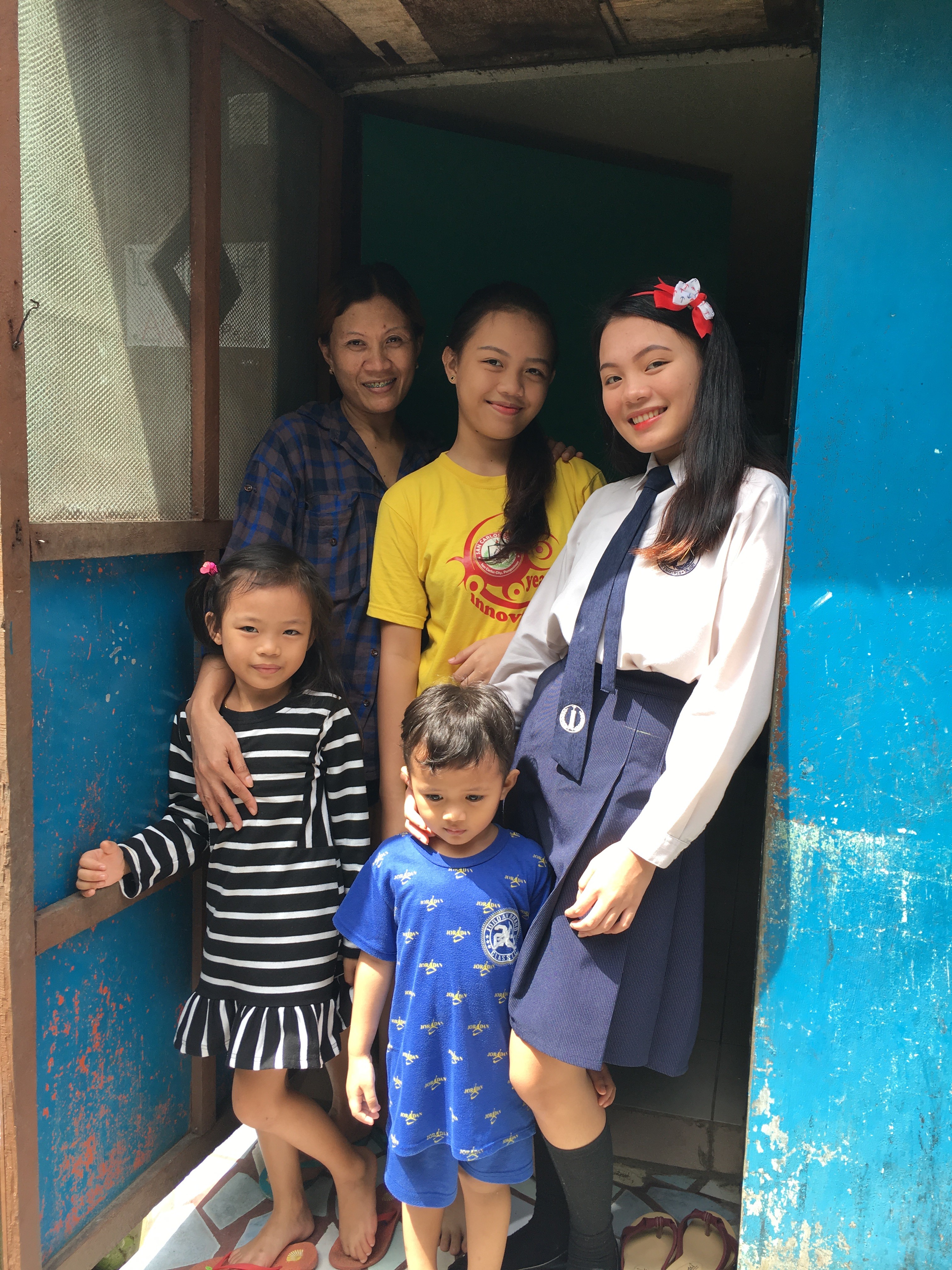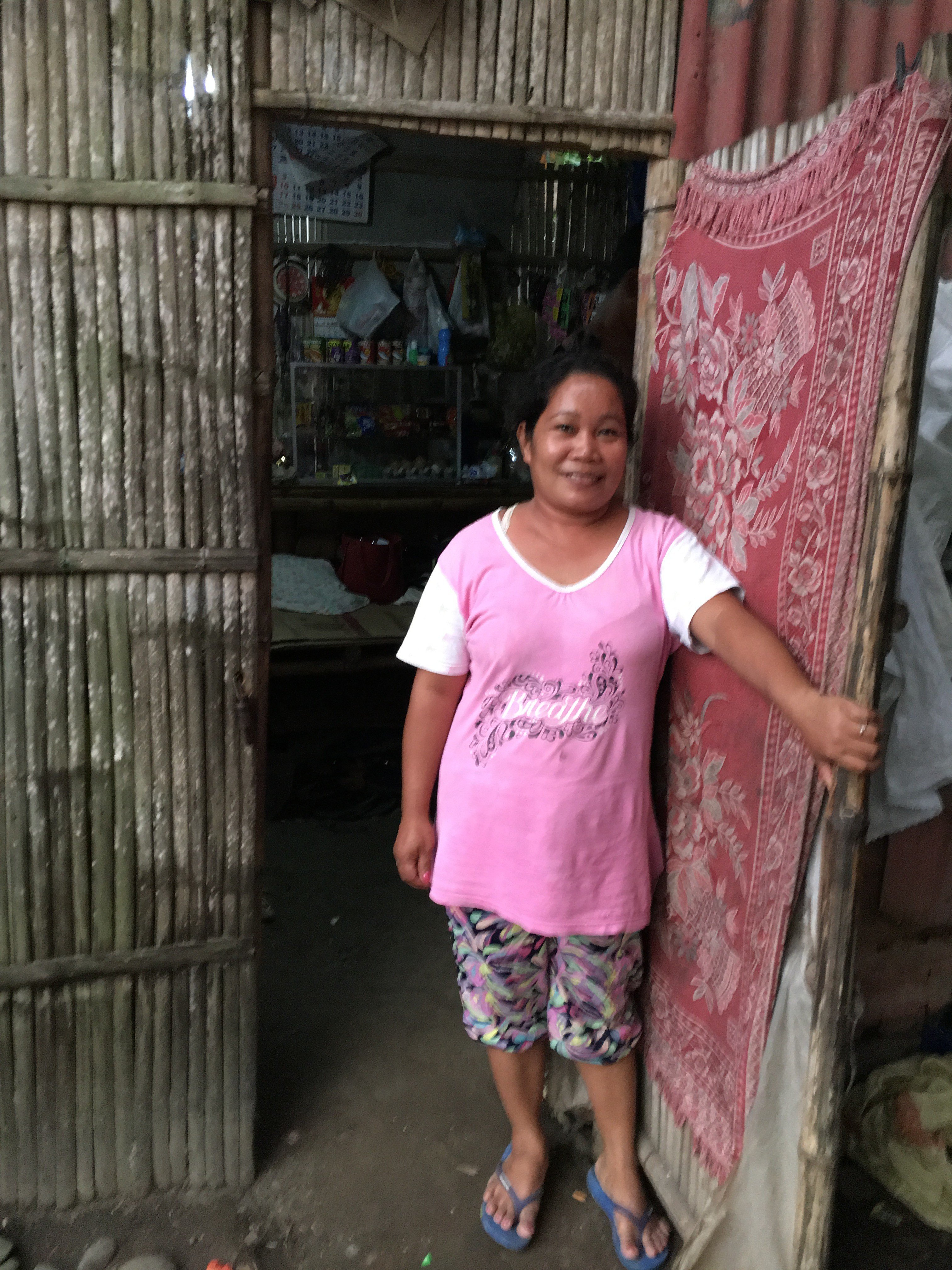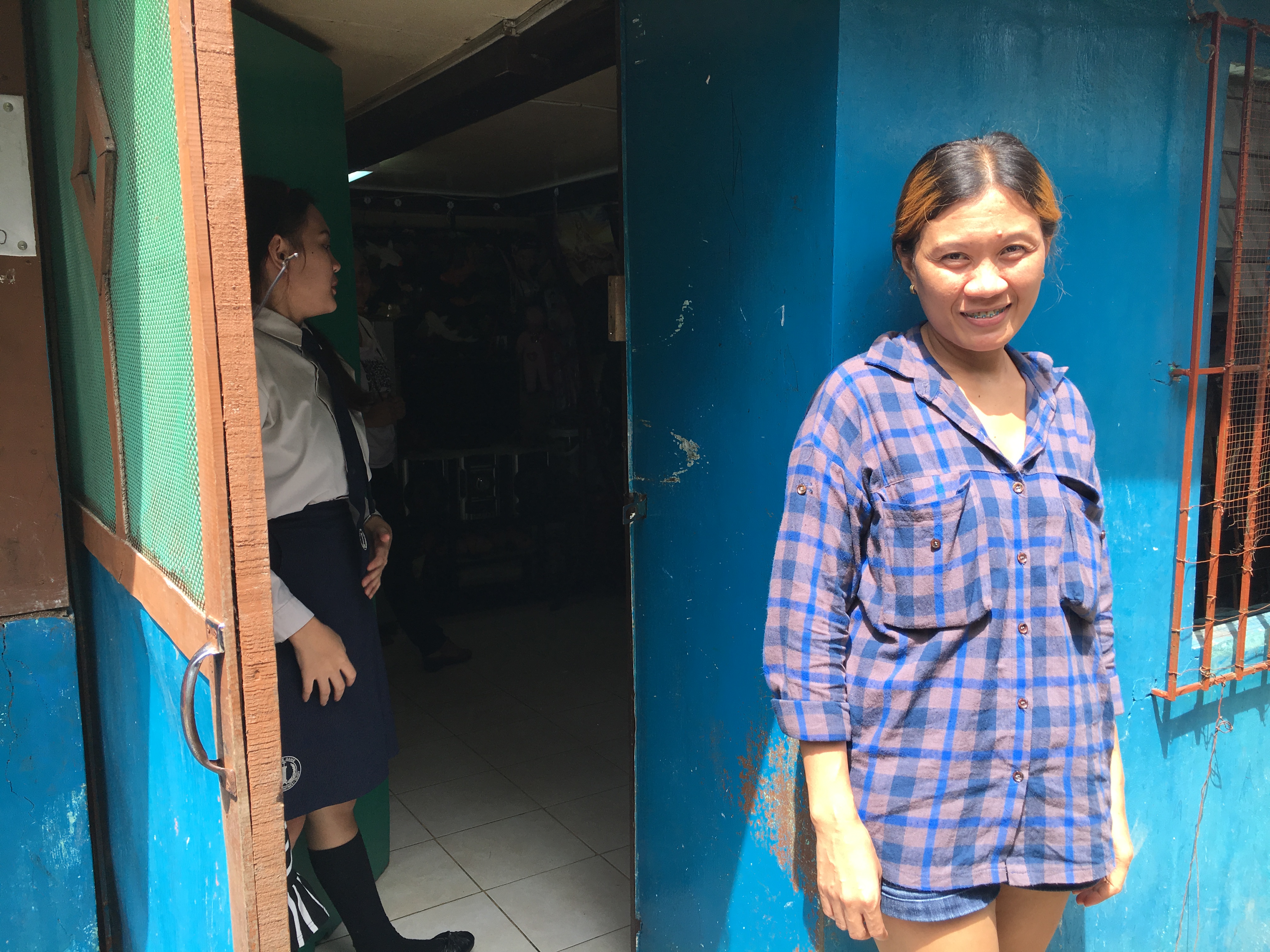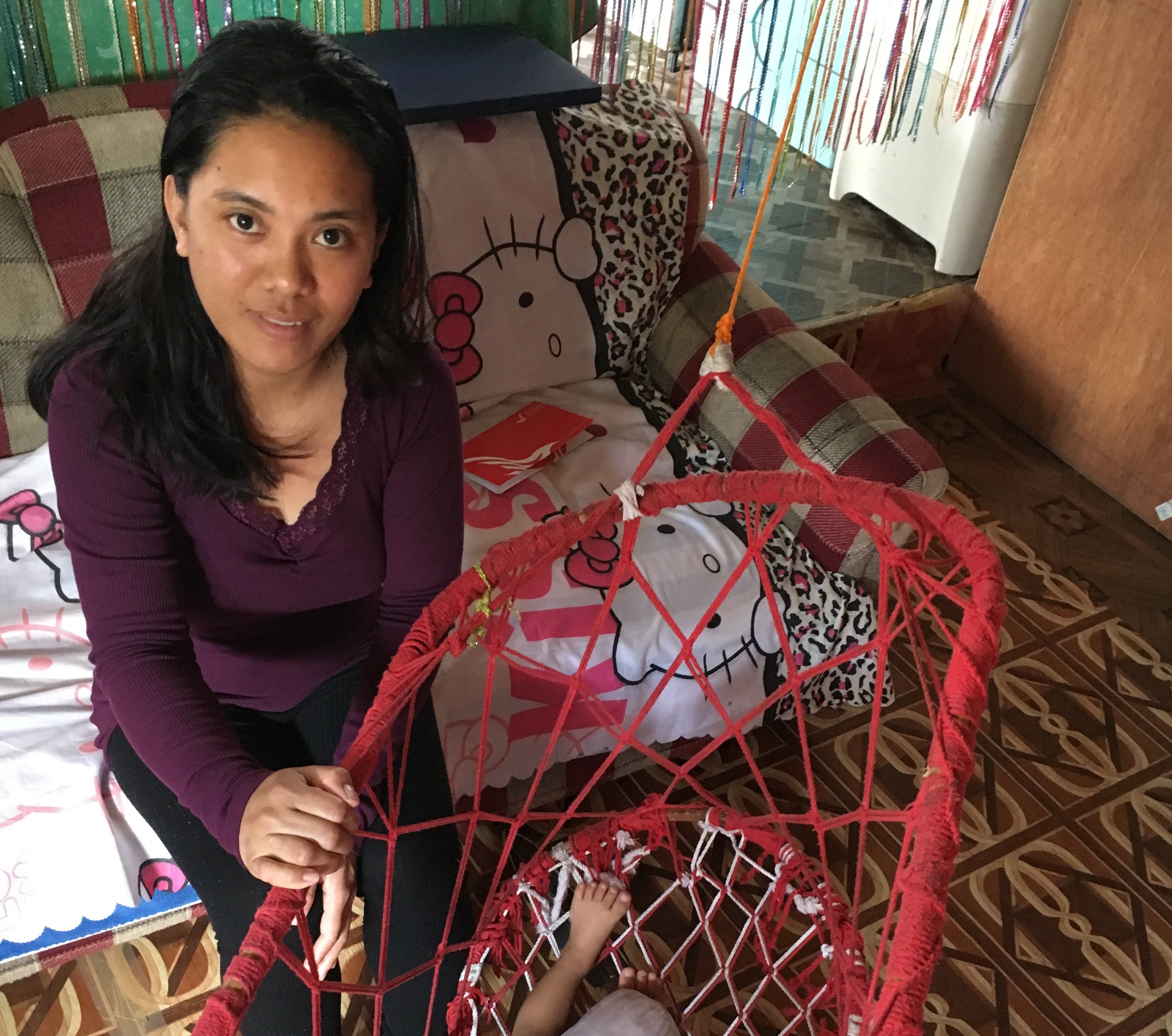While most workers choose to stay and endure the hardships, one voice of reason points out that nothing is worth putting up with abuse. In the third report from the Philippines, we speak to the women who rebelled in the ways they knew how.
There is a peculiar pattern in which experiences are remembered and retold. The need to stitch the story around what went well.
Everyone speaks around the truth. A direct answer requires a lot of probing to pierce the forced congeniality; the temptation to frame abusive practice as cultural differences because what they are told time and time again is ‘to adjust’ and ‘to understand’.
Being privy to a family’s deepest secrets places domestic workers in an even more precarious position.
Maricho Aquino, 38, is a mother of four, and can ill-afford staying in the Philippines without a job. Her husband, like many other men in the bangarays of Talisay, does not have a permanent job. Most men here are daily wage earners, either operating a tri-cycle taxi or working in the plantations. Her youngest is just two years old and was born after she returned from Qatar in 2015.
Maricho talks about how wonderful her employers were. “I worked in Doha from 2012 to 2015. It was a small family. Three children, the mother and father who worked outside the home. There were two other maids – a Lankan and Indonesian – so work was not too much.”

Maricho and her children. That they go to a good school and have better opportunities is what she focusses on despite the hardships

"We were still poor," say Amy, on what she felt after returning from working abroad for over two years

Maricho would like to go back as living in Philippines would be difficult, on the wages her husband earns

Maricho and her children. That they go to a good school and have better opportunities is what she focusses on despite the hardships
She had signed a contract for $400, but did not challenge receiving nearly 40% less than promised. “Madam said come back after contract I will pay you QR2500.”
Would she want to?
She shakes her head. “I got pregnant and my boy is so young now. But I want to go back soon. Not to the same employer. I can’t. The baba is very angry with me.”
Maricho and the other two maids worked without an off day and were not allowed out by themselves, which meant they were witnesses to everything that happened in the house. Every day. Every minute.
“The madam was scared we would runaway so she didn’t allow us out. Then my contract ended and I wanted to leave. Around that time I saw baba with another woman in the house. I promised him I won’t tell madam, but he was still angry with me all the time, and said he would not give me exit permit.”
‘Madam’ came to the rescue, and asked Maricho to ‘runaway’ to the embassy.
“So on 28 April, 2015, I stepped out, but didn’t know anything about the city, got scared and came back to the house. But baba saw me on the camera and locked me out. He said I could not come back home. I could not even take my clothes.”
Maricho had not received her last salary, did not have her passport, was not given money for tickets and had school fees to pay back home. She found a job with a well-placed Filipino family where she worked for three months (illegally as per Qatar laws), earning double of what she did with her official employer.
Once the immediate financial necessities were taken care of, she went to the POLO to seek shelter and after a month came back to the Philippines in September of that year.
A never-ending cycle
Her oldest, Shaina, is 17 and will soon start college. She is ready for school, smartly turned out in her private school uniform. She was 12 when her mother went abroad, and she helped her grandmother run the house and care for her siblings.
“A lot of my friends were also dealing with the same. So it’s not a big deal. I am studying accountancy, there are lots of opportunities for that abroad. So in a few years, I will go too, but for a good job.”
Sally says that it’s not just casual conversations in school – the curriculum itself discussed opportunities abroad and at home, about training courses, certification. “It’s good to have this. To discuss safe migration. They can plan better, assess how relevant what they study is.”
Amy survived on three to four hours of sleep a night for the two-plus years she lived there, with no weekly off.
She says there just aren't enough employment opportunities in the country. “The country should first invite more investors, to generate more job. Then increase the minimum wage. And also with every new government, the policies change.” That’s as far as criticising the government goes.
It’s not just Sally. Most women seem to have a smile for every emotion. The most dreary of stories are told with the upward curve of the lip, a faint dimple, punctuated by a sheepish laugh.
Off the main road, several kilometres inside a wooded area, with scattered lots of sugarcane fields, is a small settlement. The dirt track ends in a flattened piece of land. In one corner, close to the woods, is a basketball hoop. Children and hens run amok.
Amy Bescaser stands outside her sari-sari (petty goods) store, with a hesitant smile, a shy nod. The shop, chicken coop and her home are all encompassed in one misshapen shack with tin sheets and fabric dividing the spaces.
Just over a year ago, she came back from Sharjah after working for 26 months in the emirate.
Her husband is a daily labourer in the sugarcane fields and earns Pesos 150 a day. “That’s not enough to take care of my children – 18 and 12 – and the home. My little boy was only 7 when I left him with my mother-in-law and husband and went. A neighbour took one month salary as commission and helped me go abroad. My contract said Dhs1500 salary, but I got only Dhs1000.”
She worked for a large Iranian family. The matriarch, her four adult children, daughter-in-law, and two grandchildren.
“The children were nice to me. But mama was not. She didn’t like giving me any rest. Just more and more work. The children kept pleading with me to stay on as mama was old.”
Amy survived on three to four hours of sleep a night for the two-plus years she lived there, with no weekly off. She considered running away several times but decided against it out of fear of repercussions.
She had to fight to return when her contract ended.
Amy sent all the money she earned back home to build a house. When she came back, little had changed in the community she lives in. “My family is still poor.”
A short distance from the shack is an incomplete building. “If I want to finish that, I have to go back.”
Maricho and Amy are still seen as the luckier ones. They were paid, even if less than the promised; they ‘adjusted’ long enough.
Others, like Lolly, have more dire stories.
The shack Grace Bade, 27, lives in with her partner, mother and child is built against the seawall and come high tide, the house gets flooded. As it had the previous night. The baby is asleep in a hammock raised high enough to avoid the dampness and water rats that might have been washed in. Grace studied computers in Bacolod, but extreme poverty and her father’s illness forced her to seek a job abroad.
Jayden was just three months old when Grace left home. After five months at the agency in Manila, she went to Tayma in Saudi Arabia in October 2017.
Her job order mentioned working for a family of five. When she landed there, she realised it was a family of nine – there were seven children ranging from a 16-years-old to a newborn.
“From the beginning, the madam was always finding fault with me. I love her baby, took care of her baby as my own – I had left Jayden behind to go take care of her children so I can give him a good life. She treated me so badly. Angry with me all the time. Nothing I did was enough. She would go through my things all the time, suspecting me. The baba was very nice, but he couldn’t help.”
Her day began at about 5 am and on a good day ended around 10 pm, without a break.
“I was not allowed to keep in touch with my family. Did not have a local phone even. They did not give me proper place to stay. There was a storeroom that was really dirty, with a lot of rubbish. I put together three tables and made a bed. The bathroom had no running water.”
After three days, Grace told herself that if no rescue was possible, she would have to run away or die.
On a wing and a prayer
Around the second month of employment, physical abuse began and Grace decided to come back home. “She would keep slapping me on the back. Poking me with her cellphone. Then one day, the 7-year-old came at me with the knife threatening to stab me. I was terrified. Maybe due to the stress, I had started bleeding heavily too, three or four times a month. I had no respite, I was still made to carry heavy stuff up and down the three-storeyed building.”
When the workload did not reduce and request for medical help was ignored, Grace locked herself up in the room, refusing to come down.
“I had two pitchers of water and one kuboos,” Graces chokes up as she recounts the three days of desperation, pain and hunger.
Meanwhile, Grace’s mother, having not heard from her daughter, tried calling her daughter’s Philippine’s number. By mistake ‘loaded’ talk time to Grace’s cell phone instead of her own.
“I had lost all faith. Didn’t think I could survive. No food. No water. No contact with the family. When I heard that ping, it was like a message from God. 50 pesos loaded. I texted my mother immediately and asked her to rescue me. She then contacted the agency in Manila.”
After three days, Grace told herself that if no rescue was possible, she would have to run away or die.
Late evening on the third day she heard a knock on the door. “The madam asked me to get my things ready. It was early January this year. I had worked for more than two months but was only paid one month’s salary. They were supposed to send SR1000 back home but never gave me a receipt. I had the 500 balance with me. She took that away too. And dropped me off in a bus stop.”
A frail and traumatised Grace travelled 17 hours to Riyadh where the agency picked her up from the bus stop. She had to stay another 18 days there till her paperwork for exit was processed.
Going abroad again is not an immediate option. “If it had not been for my mother… for that bit of luck, I would be dead.”
Loreta Egar has valuable advice for her Filipino sisters. “Don’t take it lying down. Run away.”
It didn’t seem worth it. This t-shirt was more important than what I could feed my family back home for months?”
She has taken the day off from a busy schedule to share her story. She works as a massage therapist, runs a frozen food business from her home, and is an Avon sales lady. Those are her day jobs, when she is not caring for her children and mother.
“I am not going back abroad,” she declares as she sits down for lunch, pulling out from her handbag a toddler’s tee shirt and shorts with the Ferrari logo emblazoned on it. “This is a reminder for me.”
She went to Dubai in April 2017, through friends of friends who have an agency – ‘backdoor’ as she puts it.
“I thought it was easier to go this way. You have to pay more money if you went regularly. And also spend months in Manila on training. A relative in Dubai whom I trusted helped me.”
She landed in Dubai on a tourist visa and stayed at the agency there for three days. On the fourth day, she met her first employer who paid the agency Dhs15000 ($4000+) and took her home. “He said he will observe me and then process my visa. I was promised Dhs1200. There were two Sri Lankan maids too. They had three children. They were horrible. The parents would hit them to discipline them, but nothing worked. I couldn’t stand it. They kept shouting the whole day. Fighting with each other. Then one day the young boy hit me.”
Loreta insisted on being taken back to the agency, where the ‘madam’ and agency employees tried convincing her to go back and work. “Madam kept saying it was an accident and that I was lying. They didn’t want to listen to me. The agency was very angry with me and shouted at me. Because now they have to give back the money to the family.”
She waited for another employer and during that time decided if she had a problem again she won’t come back to the agency as they were more abusive.
The second family she was employed by were a couple and their two-year-old. “They didn’t have room in their apartment so I had to stay in the house of their mother and sister, sharing a room with their Indonesian maid. My madam would bring the baby over during the day and I would take care of him. They were very nice to me. The mother and sister were not.”
They would shout and swear at the Indonesian and Loreta. Loreta was whacked with pillows. The Indonesian was slapped on the back. It was daily abuse. They worked without an off day from 5 am till past midnight.
“Then one day while pressing clothes, I ran the iron over this,” she says, clutching the t-shirt, pointing to the print on it.
“For this they deducted Dhs1000dhs from my salary of Dhs1200, and threw the baby’s clothes on my face. That was it. It didn’t seem worth it. This t-shirt was more important than what I could feed my family back home for months?”
The day after, on 2 October, she left the house with her handbag and the clothes she had brought with her from the Philippines, leaving behind the gifts she had received and her passport, which was with the employer.
“I took this t-shirt and shorts as a reminder. I decided to go to the labour office, but I didn’t know the city. I was running away… I flagged down the first car that came my way and asked the two men inside to help me. To take me to the embassy.”
That’s when, according to Loreta, her ‘guardian angel’ appeared.
A big, white car stopped the car she was in and a man wearing a kandura got down. He instructed the two men to let her out, asked her to get into his vehicle, and gave her a patient hearing. When he asked her where her employer’s home was, Loreta says her heart was racing so fast she thought she would collapse. She was terrified he would take her back.
“Then he turned in the opposite direction and drove away. He saved me. He went through my bag to make sure I had not stolen anything. I don’t know why I trusted him. He said if I had my passport he would have paid for my ticket and taken me directly to the airport, but now he had to take me to the embassy.”
Loreta assumes he could have been the police or CID or an official. “He warned me that the two men could have taken me to the desert, forced me into prostitution, taken me as a sex slave, left me for dead... these things happened so often according to him. I was lucky to escape. I sent up prayers, for sending this man here when I needed help.”
In the six months Loreta worked there, she saved nothing as she had to keep sending money home for her mother’s medicines, her brother, and her children’s upkeep. “I am a single mother. I am just grateful I came back alive.”
She worries for the Indonesian working in that household. “She was already in a bad shape. And she was not strong. She really had no choice. A big family, all dependent on her.”
She also wishes her Filipino sisters have what she had… the strength and resolve to escape. “Runaway to the embassy. Nothing is worth enduring abuse.”
Previous: To leave, to stay, to adjust... come what may
Next: Marketing the 'World Class Filipino Worker'





